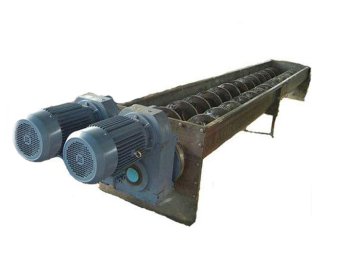Exploring Main Channel Machines for Sale A Comprehensive Overview
In the ever-evolving industrial landscape, the demand for high-quality machinery is paramount to maintaining efficiency and productivity. Among various types of equipment, channel machines play a crucial role in the manufacturing and processing sectors. This article delves into the features, advantages, and considerations of purchasing a main channel machine.
Understanding Main Channel Machines
Main channel machines are specialized pieces of equipment designed for the channel processing in various industries, including construction, metal processing, and manufacturing. These machines are engineered to create and shape channels that are essential for structural framing, HVAC systems, and other applications. They are available in various models and configurations, each tailored to specific manufacturing needs.
Key Features of Main Channel Machines
1. Versatility Main channel machines come equipped with features that allow them to handle multiple materials such as steel, aluminum, and plastic. This versatility makes them an invaluable asset for businesses looking to streamline their production processes.
2. Precision Engineering One of the standout features of channel machines is their ability to produce precise and consistent dimensions. This precision is crucial in applications where structural integrity and fit are imperative.
3. Automation Capabilities Many modern machines are equipped with automation technology, which not only increases efficiency but also reduces the likelihood of human error. Automated systems can manage everything from the initial setup to the final output, allowing for a smooth production process.
4. User-Friendly Interfaces Advanced control panels and software make these machines easier to operate, even for those who may not have extensive technical training. Intuitive user interfaces reduce the learning curve and enhance productivity.
Advantages of Investing in Main Channel Machines
1. Cost-Effectiveness While the initial investment may seem significant, the long-term savings that come from increased efficiency and reduced labor costs can be substantial. Businesses can recoup their investment by ramping up production capacities and minimizing waste.
main channel machine for sale
2. Enhanced Production Speed Main channel machines are designed to operate at high speeds while maintaining quality, allowing companies to meet tight deadlines and increase their output significantly.
3. Improved Quality Control Consistency in production leads to fewer defects and higher quality products. With precise engineering capabilities, these machines ensure that each piece meets strict quality standards, reducing the risks associated with faulty products.
4. Adaptability to Market Changes The ability to quickly adjust configurations and settings on channel machines means that businesses can respond swiftly to changes in market demand or product specifications.
Considerations When Purchasing a Main Channel Machine
Before making a purchase, businesses should consider several factors to ensure they select the right machine for their needs
1. Production Volume Assess your company\'s production requirements to determine the appropriate machine size and capabilities. Higher volumes may necessitate more complex and larger machines.
2. Material Compatibility Ensure that the machine is capable of handling the specific materials you work with, as different machines may cater to different types of materials.
3. Space and Infrastructure Evaluate your production environment to ensure that you have sufficient space for the machine. Consideration of power supply and installation requirements should also be part of the planning process.
4. Service and Support Choose a supplier that offers reliable customer support and maintenance services. An excellent after-sales service is essential for maximizing the machine\'s lifespan and optimizing performance.
Conclusion
In conclusion, the market for main channel machines is rich with opportunities for businesses looking to enhance their production capabilities. With features designed for versatility, precision, and automation, these machines are valuable investments that can lead to improved efficiency and product quality. However, careful consideration of production needs and machine specifications is crucial to ensure that the right choice is made. As industries continue to evolve, main channel machines will undoubtedly play an essential role in shaping the future of manufacturing.
 Linear Motion Shale Shaker In Drilling Rig
Linear Motion Shale Shaker In Drilling Rig  Oilfield Mud Cleaner
Oilfield Mud Cleaner  Drilling Fluid Decanter Centrifuge
Drilling Fluid Decanter Centrifuge  Drilling Mud Desander
Drilling Mud Desander  Hydrocyclone Desilter
Hydrocyclone Desilter  Centrifugal Pump/Centrifugal Mud Pump
Centrifugal Pump/Centrifugal Mud Pump  Shear Pump
Shear Pump  Jet Mud Mixer
Jet Mud Mixer  Horizontal Mud Agitator
Horizontal Mud Agitator  Constant Pressure Drilling Fluid Mud Gas Separator
Constant Pressure Drilling Fluid Mud Gas Separator  Mud Gun
Mud Gun  Mud Tank
Mud Tank  Solids Control System Vacuum Degasser
Solids Control System Vacuum Degasser  Flare Ignition Device
Flare Ignition Device  Diesel Tank
Diesel Tank  Submersible Slurry Pump
Submersible Slurry Pump 






































